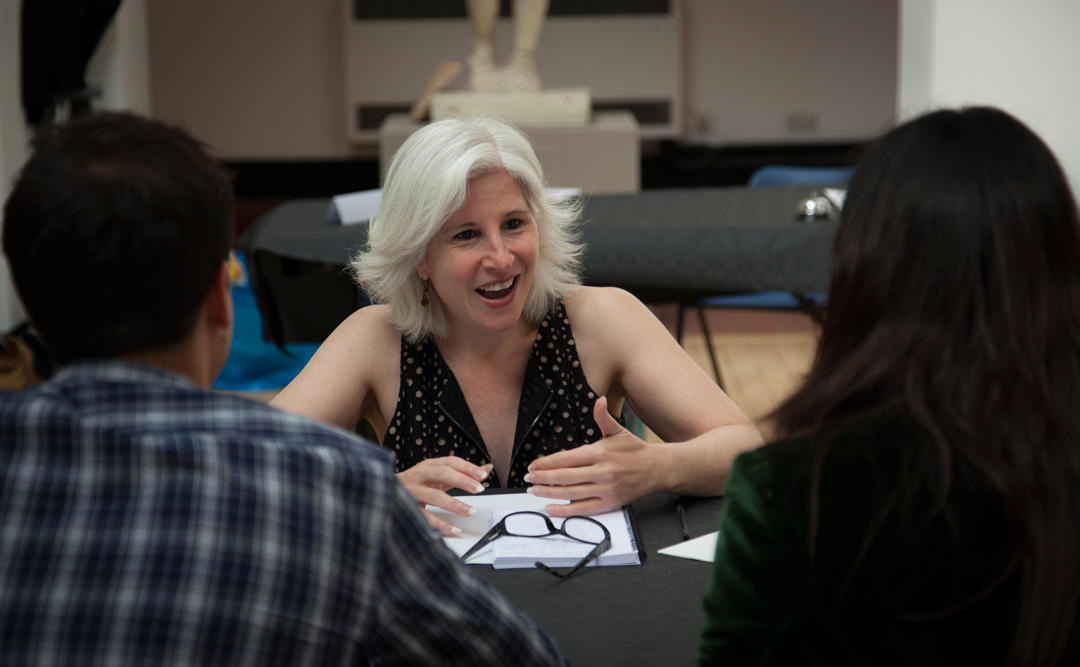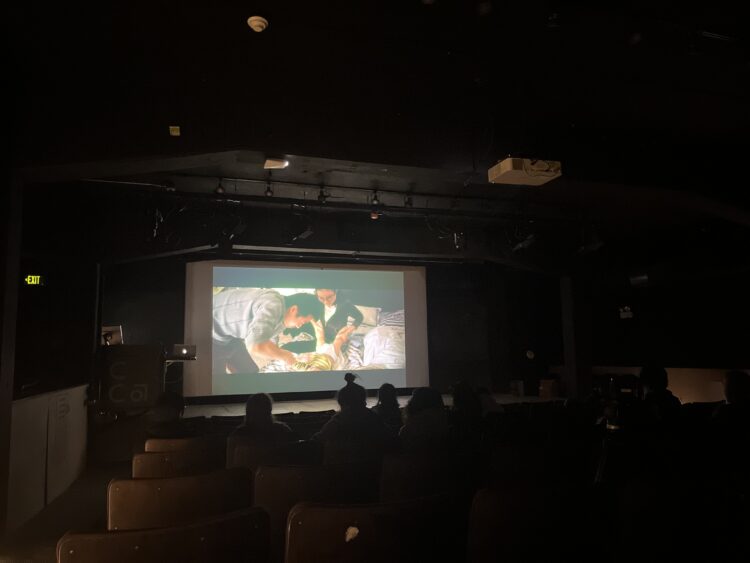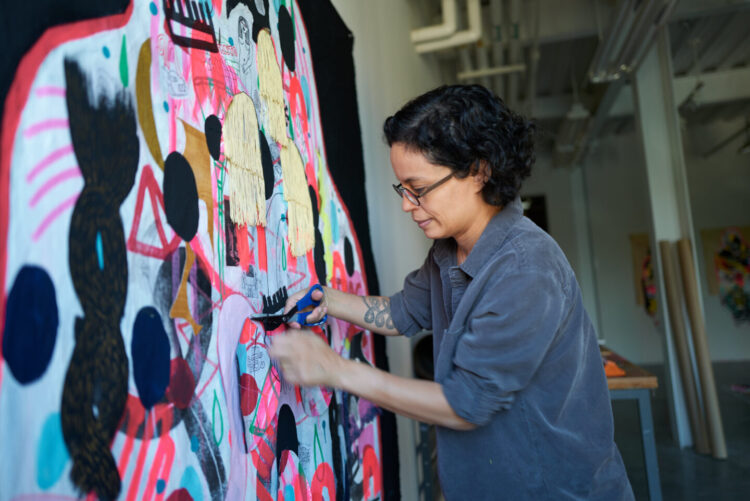Planting Seeds: Tracie Holder on Grantwriting

Tracie Holder learns how to tell her stories by first telling them to funders. As an award-winning filmmaker, fundraising consultant and engagement campaign specialist currently working with Women Make Movies, Tracie has raised an impressive $2 million for her projects from a mix of government funders, private foundations and individuals. We talked to Tracie about how she got her chops in grantwriting and how artists can incorporate their search for funding into their creative practice.
Ana Cecilia Alvarez: Tell us about your experience as a grantwriter. What have been some of your granting success stories and what hard lessons did you learn along the way?
Tracie Holder: In 2012, I co-directed/produced a feature documentary film, Joe Papp in Five Acts, which premiered at the Tribeca Film Festival. Despite its title, I think a more apt one might be Joe Papp in Twelve Proposals, as a far greater amount of my time was spent on grantwriting and fundraising than was spent on filmmaking. Unfortunately, unless you’re independently wealthy, which I’m not (though I plan to be in my next life), no matter how inspired your creative vision may be, without the ability to secure grants, fellowships, commissions and other similar forms of financial support, your idea will remain just that, an idea, a theory.
I’m proud to have raised more than $2 million for my own projects from a mix of government agencies, private foundations and individuals. Among the grants about which I’m most proud are two: one from the MacArthur Foundation for Mudflow, a feature documentary I’m producing, and several from the National Endowment for the Arts (for Papp and another film, Second Fiddle).
In the past year, the New York Times published an article talking about how much more difficult it has become in recent years to gain acceptance at the leading colleges and universities here in the U.S. The article focused on Harvard, Yale and Stanford where the average rate of acceptance is between 5-6%. The rate of acceptance for funding from the MacArthur Foundation or the Sundance Documentary Film Fund is between 3-4%. That means it’s actually easier to get into Harvard than it is to get a grant for your film from MacArthur or Sundance. I didn’t get into Harvard when I applied a lifetime ago but I am proud to say, I have received major funding in the past two years from the MacArthur Foundation.
Ana: What would you tell artists and creative professionals who want to make grantwriting a part of their practice, not just another thing to add to their busy schedules?
Tracie: While I’m guessing no one would choose to spend their time writing grant applications, it is a skill like any other, and one that I believe can be learned and mastered. When I write a grant, I have a game plan that guides my process. In addition, over the years, I’ve come to see grantwriting as part of my artistic practice. The process of having to explain my ideas on paper and describe them in visual, vivid terms—so the person reading my proposal can envision what I’m describing in their mind’s eye forces me to clarify my ideas and really think through what I intend to do. As a result, I see it as a step along the path to creating my work.
Ana: Is there any one thing that will make or break a grant proposal? What must artists absolutely keep in mind when submitting a proposal?
Tracie: I believe you have two primary goals when writing a grant proposal: inspire confidence and convey a fully-realized idea that suggests that if the funding were awarded tomorrow, you know exactly what you plan to do. You’ve thought through all the steps and could begin to implement your idea instantly. The only thing you lack is the funding (for now!).
Ana: What do you hope artists will learn from attending your webinar?
Tracie: I hope artists will come away from this webinar feeling less intimidated by the grant writing process. My goal is to share my experience and to explain my process so artists will feel they have a solid roadmap that will help guide them as they start to flex their fundraising muscles. Even when I don’t get funded, I believe the process has value. Every time you submit a grant, you get on the radar screen of potential funders, broaden the network of people who are aware of you and your work, and you refine your ideas.
I think of it as planting seeds. Some will take root and others won’t. But each time you write a proposal, you learn something that will serve you the next time you write one.
Creative Capital hosts professional development workshops to help artists learn skills such as proposal writing, marketing, and tax skills to help artists complete successful projects from inception to completion. Check our calendar for upcoming workshops!

